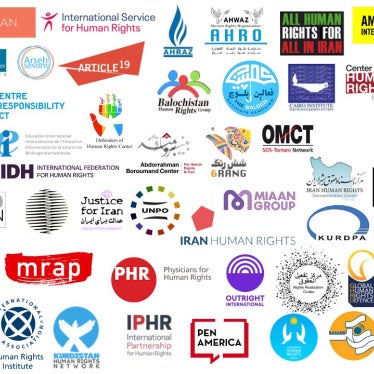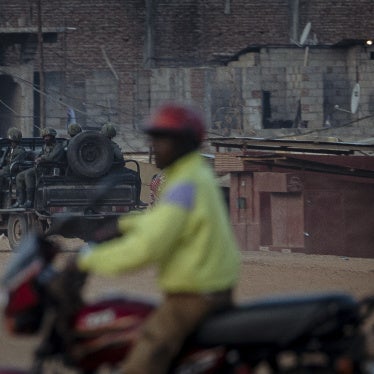The stench of mold in the dormitory was overpowering. A dozen bunk beds hugged the perimeter, lest one centimeter of potential sleeping space be wasted. Wooden planks served as mattresses for some of the men who called that barrack home.
This was not a prison or a housing complex in one of the world’s poorer regions. It was a company-built dormitory for Bangladeshi workers in the state of Qatar, the world’s wealthiest nation in terms of gross domestic product per capita. And it took only 15 minutes to get there from Doha’s breathtaking downtown.
Qatar aspires to be a global player in politics, business, education and sports. From the ubiquitous billboards of the Qatar Foundation touting Doha’s “Education City” — where Western universities are building high-tech campuses — to Qatar’s designation as host country for the 2022 FIFA World Cup, the ambition of this small nation is undeniable.
But not far from modern, cosmopolitan Qatar lurk the people upon whose backs the enterprise continues to be built: 1.2 million migrant workers, most from Southeast Asia, who outnumber Qatari citizens at least four to one. With the equivalent of at least $55 billion to $60 billion committed to World Cup-related construction projects, the number of migrants in the construction sector will only grow.
I recently visited Qatar on behalf of Human Rights Watch to document the conditions of migrant construction workers. The vast majority of workers we spoke with reported that employers confiscated their passports, making it difficult for some to leave the country or return home freely. Many said that their working conditions or salaries differed significantly from what they had agreed to before leaving their home countries. Many also reported having borrowed heavily to pay fees charged by recruiters in their countries of origin — Qatar, unlike the United Arab Emirates, does not require sponsoring employers to pay all fees associated with imported labor — and needing to work for months or years in Qatar just to pay off these debts. And many slept in unclean, overcrowded barracks, sometimes with no mattresses or air-conditioning, in a country where summer temperatures routinely exceed 40 degrees Celsius.
The Qatari government representatives who received the Human Rights Watch delegation cited domestic legislation as prohibiting practices like passport confiscation, overcrowded dorms and non-payment or delayed payment of salaries by employers, but generally would not acknowledge the pervasiveness of the violations. Despite serious instances of abuse, high-level officials at Qatar’s Ministry of Labor informed us that none of the 150 employees at the ministry’s labor inspections unit speak languages commonly used by the migrant workers. When we asked how the ministry could accurately monitor working conditions without staff members who could communicate directly with the workers, the officials informed us that they are able to monitor everything from working hours to payment problems through information garnered from the employers. The obvious consequence of this surprising lack of interest in obtaining information from the workers themselves is a disconnect between the ministry’s information and the realities of life for many workers.
Qatar also continues to maintain the “sponsorship system,” which prohibits workers from changing jobs without their sponsoring employer’s consent and requires workers to procure exit visas from their sponsors before they can leave the country. Trying to navigate the legal system to break the bond if their rights are abused is a terrifying or even impossible prospect for many workers, who fear losing their only source of income and often do not possess the language skills or financial means to pursue a case.
The root of the problem is a system that allows officials, employers and ordinary citizens to evade responsibility for abuses at every turn. Government officials point to laws on the books without enforcing them diligently. Employers claim that they treat their workers better than other employers treat theirs. And Qatari citizens sleep easy believing that these workers, despite low wages and vulnerability to abuse, earn more in Qatar than they would as farmers, craftsmen or menial workers in their countries of origin.
The Qatar Foundation’s billboards constantly remind us to “Think” in the service of “Unlocking Human Potential.” Qatar is employing much human and material capital to become a major force in global affairs, media and sports. If it deployed similar resources to improving the conditions of its migrant workers and promoting fair labor standards, it would become a regional leader in this realm too. It would set a commendable example for the many neighboring countries that employ hundreds of thousands of migrant workers.
*David Segall is an associate with the Middle East and North Africa division at Human Rights Watch*







